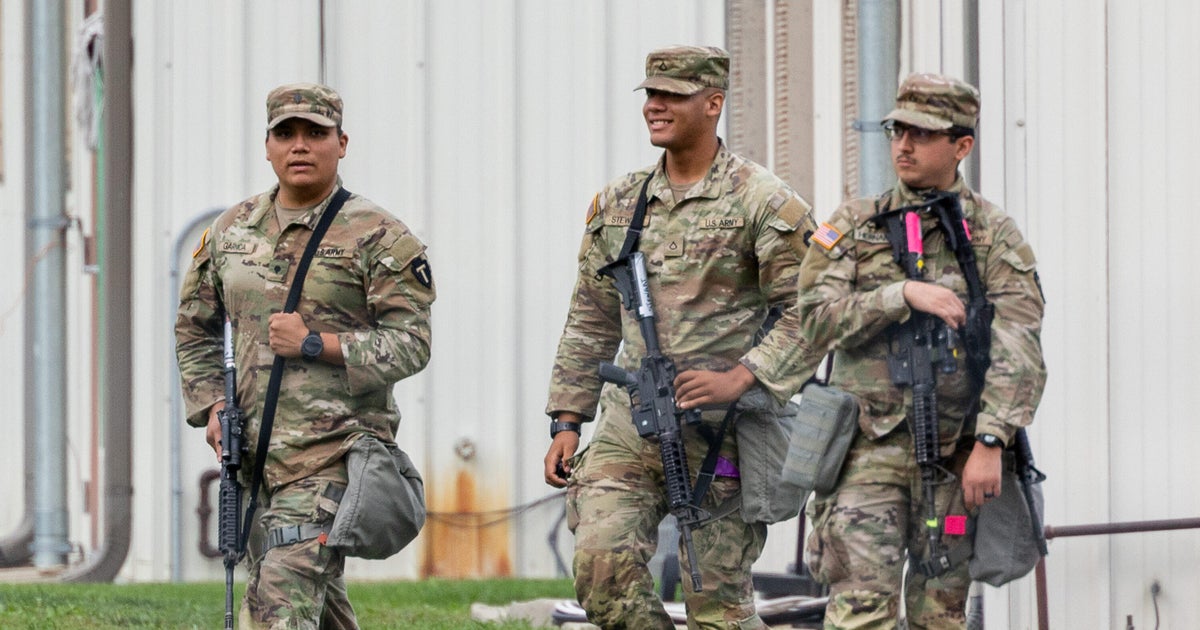Supreme Court Delays Decision on Trump's Illinois National Guard Deployment
The U.S. Supreme Court has postponed a ruling on the Trump administration's request to deploy National Guard troops in Illinois, seeking more information and delaying a decision until after mid-November.
Subscribe to unlock this story
We really don't like cutting you off, but you've reached your monthly limit. At just $5/month, subscriptions are how we keep this project going. Start your free 7-day trial today!
Get StartedHave an account? Sign in
Overview
- The Trump administration proposed deploying National Guard troops in Illinois, arguing Chicago protests constituted a rebellion and regular forces couldn't enforce laws.
- The U.S. Supreme Court has paused the deployment, requesting more information and legal briefs on Title 10, Section 12406 of the U.S. Code.
- The Supreme Court is seeking clarification on the term "regular forces" and its reference to the U.S. military, which is key to the deployment's legality.
- U.S. District Judge April Perry's restraining order blocking troop deployment remains in effect, pending the Supreme Court's decision on the matter.
- A ruling on the federalization of National Guard troops in Illinois is now delayed until after November 17, as the Supreme Court gathers necessary information.
Report issue

Read both sides in 5 minutes each day
Analysis
Center-leaning sources cover this story neutrally, focusing on the procedural aspects of the Supreme Court's request regarding the National Guard deployment. They present factual details of the legal challenge, including court rulings and the specific legal question posed by the justices, without injecting editorial opinion or using loaded language, ensuring a balanced report.
Articles (4)
Center (3)
FAQ
The Trump administration's request to federalize and deploy National Guard troops in Illinois is based on Title 10, Section 12406 of the U.S. Code, which allows the President to call the National Guard into federal service to enforce federal laws when necessary. The administration argued that the protests in Chicago constituted a rebellion requiring such intervention.
The Supreme Court has delayed its decision to seek additional information and legal briefs concerning the interpretation of Title 10, Section 12406, specifically the meaning of 'regular forces' and whether it refers to the U.S. military, which is central to the legality of the deployment. The Court's ruling is postponed until after November 17, 2025.
Governor Pritzker of Illinois objected to the deployment, refusing to consent to the federalization of the state's National Guard. Additionally, some National Guard members have voiced their refusal to participate, citing concerns about being ordered to act against their own communities and questioning the legality and ethics of such orders.
Federal courts, including a U.S. district judge, have issued restraining orders blocking the deployment of National Guard troops in Illinois, pending further legal review. Similar rulings in other states have found parts of the deployment illegal, particularly concerning violations of laws like the Posse Comitatus Act.
In 2025, during President Trump's second term, federal forces, including National Guard units, have been deployed in several U.S. cities to address protests, crime, and immigration enforcement. These deployments have been controversial, targeting mainly Democratic-led cities and raising legal and civil liberties concerns, with courts sometimes ruling against the administration's actions.
History
- This story does not have any previous versions.




